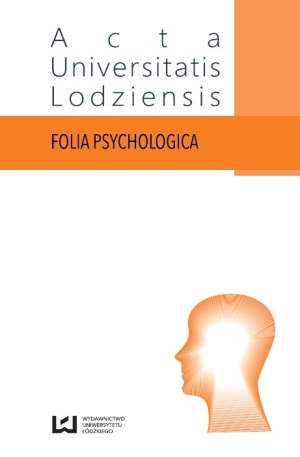UŻYTECZNOŚĆ RÓŻNYCH SPOSOBÓW ROZUMIENIA INFORMACJI W PSYCHOLOGII
THE USEFULNESS OF DIFFERENT METHODS UNDERSTANDING OF INFORMATION IN PSYCHOLOGY
Author(s): Jan MłodkowskiSubject(s): Psychology
Published by: Wydawnictwo Uniwersytetu Łódzkiego
Keywords: cognitive psychology; information; mental process; mental processing
Summary/Abstract: Discussions regarding the notion of information have died out several years ago. However an agreement hasn’t been reached on the exact meaning of such a term. Most often the notion of information is understood as: 1) knowledge about structure of an object, 2) third appearance of the substance, 3) perceptible difference between objects. These interpretations are not exclusive, but there is not one theory that combine them. In cognitive psychology notion of information is perceived as a pardigmat. At the same time its meaning is often equated with the concept of mental process, or the content of such mental process. Mental activity and in particular intelectual activitiy generally is recognized and equated with processing of an information. Such interpretation ignores the fact that information cannot be processed directly because it doesn’t exist without a carrier. In fact these carriers undergo processing. The new information based on re-configuration of carrier’s structure could be redeveloped. The carriers are mental representations of the carried content and they represent themselves as icons, symbols and concepts. Hence the mental activity is the processing (sometimes creating) representations.
Journal: Acta Universitatis Lodziensis. Folia Psychologica
- Issue Year: 2009
- Issue No: 13
- Page Range: 17-28
- Page Count: 12

